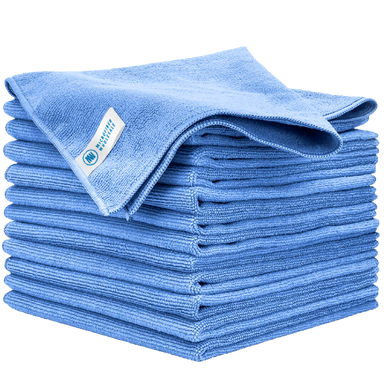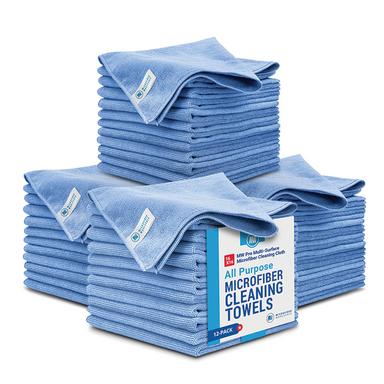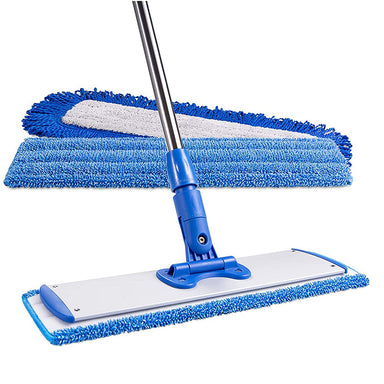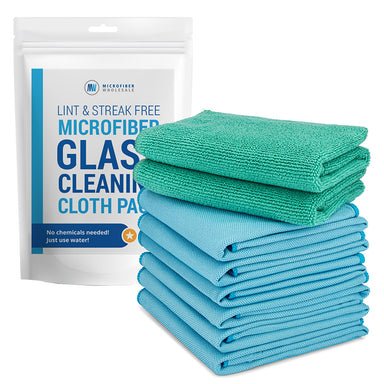6. Neglecting to Clean Cleaning Tools
Would you wash your face with a dirty cloth? The same logic applies to mops, sponges, and vacuums. When cleaning tools aren’t regularly sanitized or replaced, they end up spreading bacteria and grime rather than removing it.
Your cleaner might bring their own tools, but if you provide items (or clean in between visits), it’s important to maintain them. A foul-smelling mop or mildewed sponge won't leave your surfaces fresh.
Tool TLC: Rinse out cloths with hot water, sanitize sponges in the microwave or dishwasher, and wash mop heads regularly. Replace tools as soon as they start to look worn.
7. Leaving Dishes in the Sink
A sink full of dirty dishes makes it hard, sometimes impossible, for your cleaner to get to the sink, faucet, or countertops. And if they’re spending time moving dishes around, that’s time taken away from sanitizing other areas.
Unless dishwashing is part of your cleaner’s responsibilities (and agreed upon), it’s best to at least rinse and stack them neatly or place them in the dishwasher before your appointment.
Quick Fix: Even a few minutes of pre-cleaning effort on your part can help your cleaner focus on the parts of your home that really need professional attention.
8. Not Communicating Specific Needs
While many cleaners follow a checklist or routine, they’re not mind-readers. If there’s a spot that’s driving you crazy, or an area you want them to avoid (like a home office during meetings), they need to know.
Lack of communication often leads to missed tasks or dissatisfaction, not because the cleaner isn’t skilled, but because expectations weren’t aligned.
Talk It Out: Leave a friendly note or send a quick text the night before your cleaning appointment with any updates or priorities. It keeps everyone on the same page.
9. Expecting a Deep Clean Every Time
Regular cleaning appointments are meant for maintenance: wiping counters, vacuuming, disinfecting bathrooms, etc. But deep cleaning, such as inside appliances, baseboards, and high dusting, requires extra time, effort, and planning.
It’s frustrating for cleaners to be expected to do deep-clean-level work in a one-hour slot with no prior notice.
Plan Ahead: Want a spring refresh or move-out deep clean? Just ask. Most cleaners are happy to schedule these with extra time and an updated rate.
10. Not Providing Feedback
Your cleaner wants to do a great job, but they can’t fix what they don’t know. Many clients avoid giving feedback out of politeness, but gentle, constructive comments are appreciated and help improve the service.
At the same time, positive feedback goes a long way too. If you love how the shower sparkles or appreciate their attention to detail, let them know!
Be Honest & Kind: Whether it’s a quick chat, note, or text, clear feedback strengthens the relationship and improves outcomes on both sides.
















